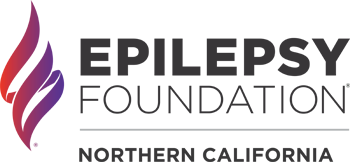
I was really fortunate in my early years that I rarely felt ostracized for my epilepsy. I was lucky enough to have protective friends and naive enough not to notice the mimicking or rude comments I’d hear about later. I remember one friend on the playground in a game of tag saying, “He’s having a seizure! Run!” and having to confront that. I came to notice that years of my childhood and teens were stolen by the fact that I was, and remain, a medical anomaly.
One neurologist had the gall to tell my parents I was faking it for attention, AFTER having seen a scan that showed I was having seizures in my sleep. I feel unsafe in hospitals because nurses never believe just how sensitive I am to medication. I lost years to doctors’ offices; my mother, who had largely given up her own social life to become medically literate, explaining an eight pound binder of records to professionals that would not take the time to read any of it themselves. The ego of the first wave kept my family from knowing of the existence of epilepsy specialists for years. When the tool box of pills failed, it would be suggested that I try them again despite the horrendous side effects that kept me more frequently in a hospital and in clinics than amongst peers: exploring, learning, playing. In my early twenties, it became harder and harder to meet with old friends as they continued to accumulate years of life experiences I could not relate to.
How does one answer the question “what’s up?” when you’ve just listened to them share a grand adventure, and your big achievement that year may have been making your own breakfast, unassisted, for the first time? I learned not to share my milestones.
What would I give to drive a car to the grocery store? To buy my own gas? I remember climbing into the drivers seat in my teens and fantasizing about turning on the ignition. Maybe then I would have an answer to the dreaded question ‘what is the craziest thing you’ve ever done’? Filmmaking brought fulfillment, community and meaning. I had a voice. I was Miles who made films. Miles who liked to teach, volunteer and play board games. Miles who, by the way, has epilepsy. Miles who has the privilege of being ABLE to talk about epilepsy. Miles who LIKES talking about epilepsy. I am Miles who has found a way, and that’s the craziest thing I’ve ever done.
You can learn more about Miles’ short film Under the Lights, an award winning epilepsy story and a part of his efforts to fight stigma @underthelightsfilm and
www.underthelightsfilm.com
